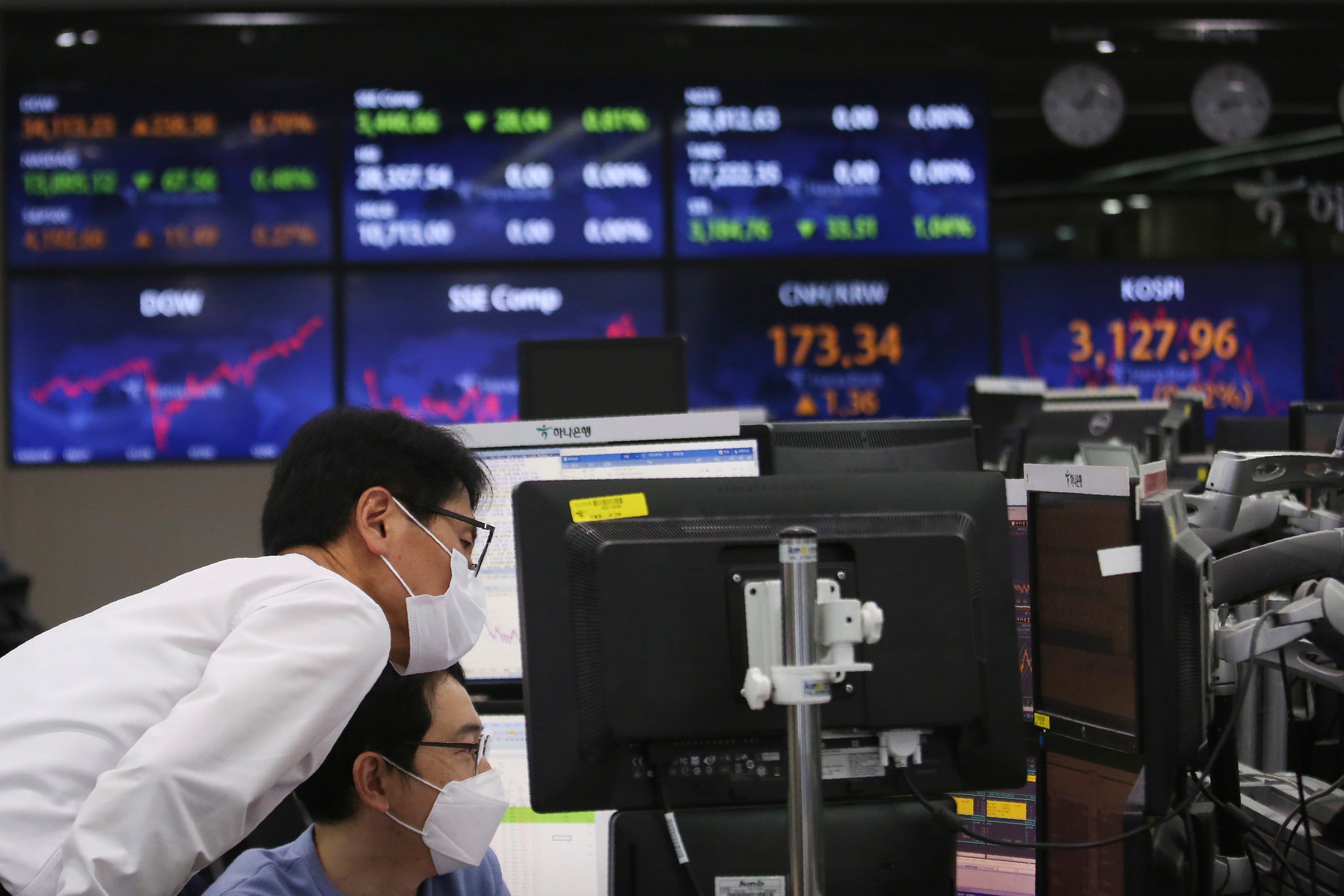Don’t sell your investments this May, whatever the old adage says
Conventional wisdom suggests now might be time to cash out, but none of us can know what share prices will look like at the end of the year, writes Hamish McRae


Should you “Sell in May and Go Away”, as the long-standing bit of popular investment wisdom holds? That advice has been given some impetus this month, with the rapid rise in share prices worldwide since the beginning of the year and the sharp sell-off, particularly of tech stocks, in the past few days.
Timing the end of a bull market is notoriously difficult, but maybe investors are wondering whether this might be the time to take profits, and wait and see what the summer brings.
The idea of selling in May apparently stems from the practice of rich Britons leaving London in the spring and heading off to their estates in the country. While they were out of town they could not attend to business matters so it was better to avoid any financial risks. This spread to the US, where the period between Memorial Day and Labor Day became the time when the wealthy avoided the city heat and headed to their summer retreats. But does it work?
Well, up to a point. Forbes magazine looked at this a few years ago, and writer David Wismer concluded that between 1950 and 2013 the Dow Jones index rose by an average of only 0.3 per cent between May and October, whereas it climbed 7.3 per cent from November to April.
However Merrill Lynch examined data going back to 1928 and calculated that while May itself might be a weak month, with a tiny average decline, the June to August period was the second strongest three-month period of the year. If you want an even longer perspective, CXO Advisory Group looked back 142 years and tested three investment strategies over this period. One was to hold equities between November and April and then have cash from May to October, a second was to do the reverse, and the third was to keep invested right through the year. By far the best strategy was number three: to keep invested throughout the year, particularly when transaction costs were included.
So what about this year, and what about non-American experiences? The Swiss bank UBS has just put out a note arguing that given the surge in share prices so far this year, there is a temptation to sell in May, but people should not do so.
They acknowledge that in Europe, as opposed to the US, share prices have been lower in November than they were in May, in 80 per cent of the past 15 years. But they point out that this does not work consistently in different markets and at different times. They think this year may be special, given the strong recovery now taking place, and they note that the timing of getting back into the market may be difficult. Last year saw a massive sell-off of shares, but also the swiftest-ever bounce back.
Oxford Economics take the same view, in a paper headlined “Don’t sell in May or beyond”. They think that the reflationary momentum continues apace. Global industrial activity will speed up and that will support global equities. Bond yields will go up but they think that equities can live with that. In other words, a bear market in bonds need not lead to a bear market in equities.
This is a really important point, because it is pretty clear that interest rates have to rise to counter the coming increases in inflation worldwide. The only questions now are how soon will these rises start to come through and how high will interest rates have to go. The answers will be driven not by the central bankers themselves, but by what happens to inflation. For me, the scary inflation numbers are not those of commodities, oil prices and all the other things that economists see as early-warning indicators, but house prices.
In the US, according to the National Association of Realtors, they were up 17.2 per cent in March. In the UK, according to the Halifax, they were up 8.2 per cent in April. In Germany, it is much the same as the UK, with prices in the 10 major urban areas up 8.3 per cent, according to Fitch Ratings, though with slightly lower rises elsewhere.
The numbers are scary because they increase inequality in the most obvious of ways. People who own expensive homes become even richer, while those who are struggling to get onto the housing ladder have an even higher hurdle to get onto the first step. And the only effective way to curb these increases are higher interest rates.
Property gives some sort of protection against inflation; so too do equities. None of us can know how fast inflation and interest rates will climb. None of us can know what share prices will be at the end of this year. But if staying invested has given the best results over the past 142 years, it cannot be sensible now to sell in May and go away.



Join our commenting forum
Join thought-provoking conversations, follow other Independent readers and see their replies
Comments